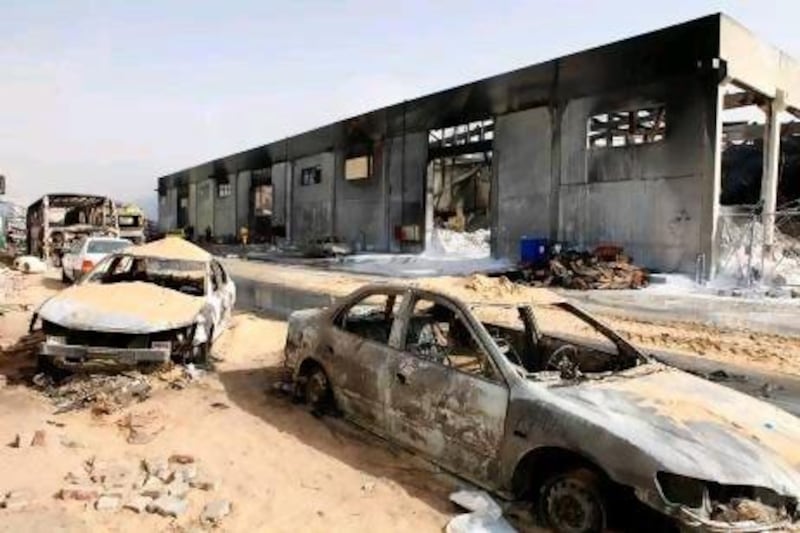SHARJAH, UMM AL QUWAIN // Four in 10 companies in Sharjah's industrial zones are breaking fire-safety rules.
Civil Defence inspectors made 4,651 visits to companies between March and last month as part of a national fire-safety campaign, and found 1,888 in breach of strict safety standards.
Among the offenders, 76 establishments were not insured. Offences included keeping flammable materials near gas cylinders, faulty electrical wiring and worn-out cables. In addition, 138 businesses had tackled a fire on site.
Brig Abdullah Al Suwaidi, director general of Sharjah Civil Defence, appealed to companies to comply with safety standards and avoid accidents that threaten the lives of employees and property. Those who do not "will face hefty penalties, including closure", he said.
The campaign, initiated by Sheikh Saif bin Zayed, Minister of Interior and Deputy Prime Minister, is aimed at making factories, warehouses, labour camps and residential areas safe from fires.
Each year, particularly in the summer months, fire crews are forced to tackle large blazes in Sharjah's industrial areas, such as the National Paints factory blaze two years ago.
In Umm Al Quwain, inspectors have visited 480 establishments in industrial areas since the campaign started, said Col Hassan bin Sullam, the director general of UAQ Civil Defence.
"We have four teams of inspectors, each team made up of three inspectors, who go around the industrial areas checking for the fire-safety violations," Col bin Sullam said. Offenders are warned, or if they have been warned in the past they are fined.
Teams also conducted fire-safety training workshops for about 5 per cent of the total number of workers employed in the industrial areas.
"Most of the fires here can be avoided or easily put out by workers at site in their initial stages, and this was why we are putting emphasis on training them," said Col bin Sullam.
The main breaches were modifications to buildings that were not approved by authorities, and a lack of fire alarms.
Some fire extinguishers were not regularly maintained and others were found to be leaking. Poor storage of flammable chemicals was also another major offence.






